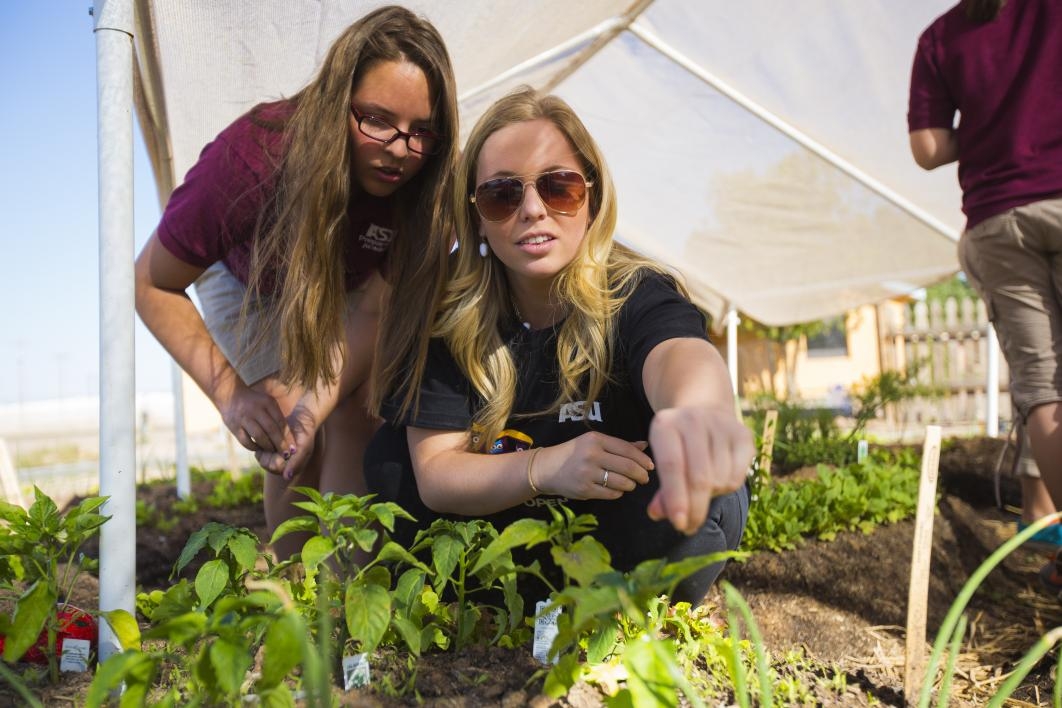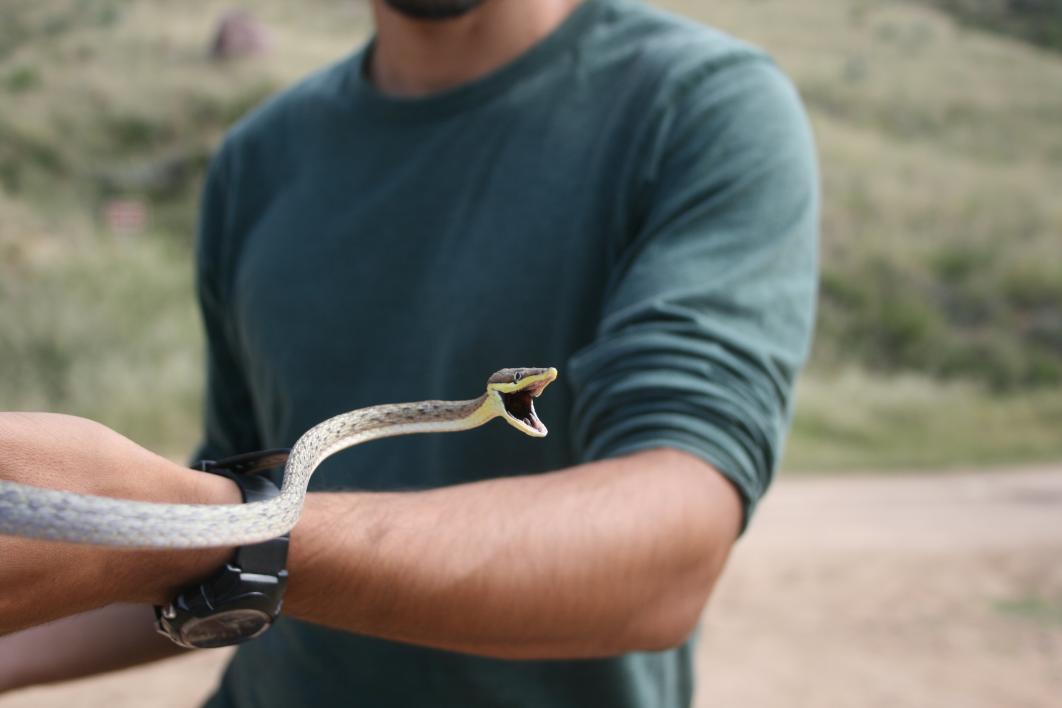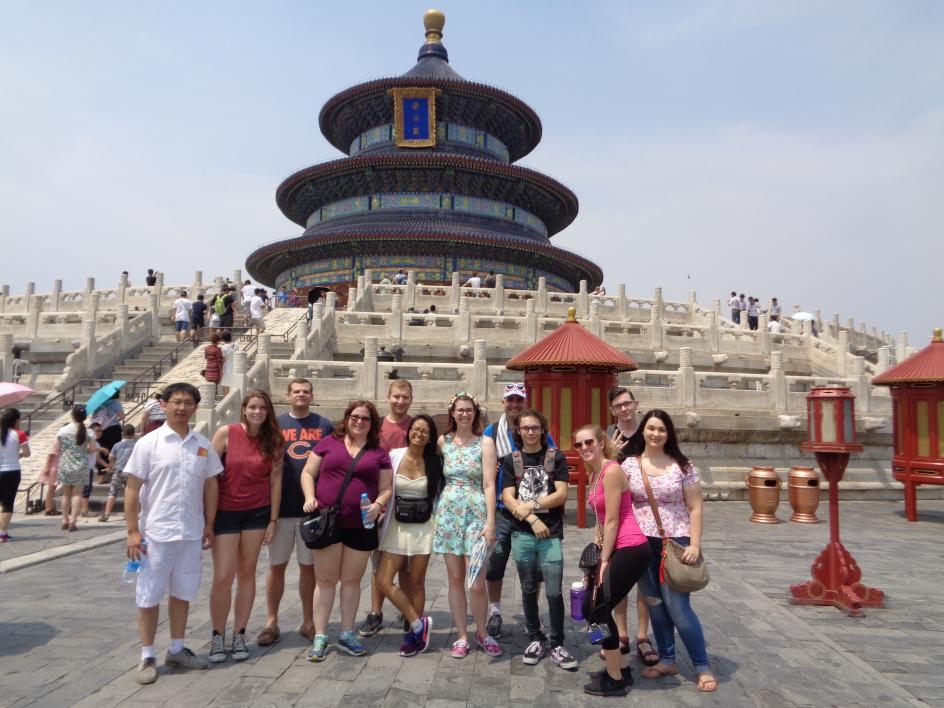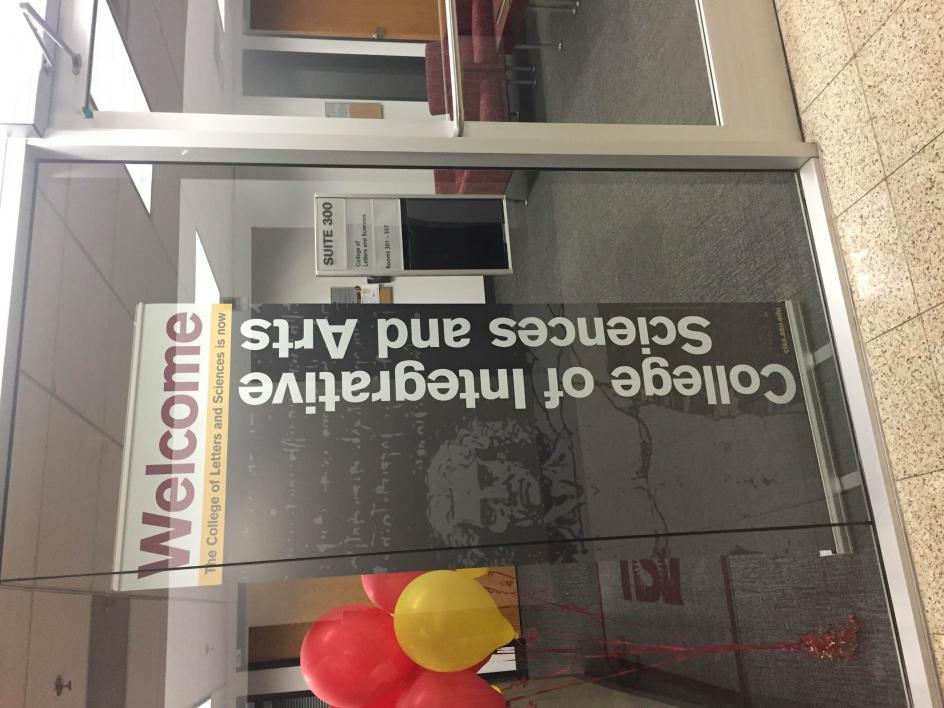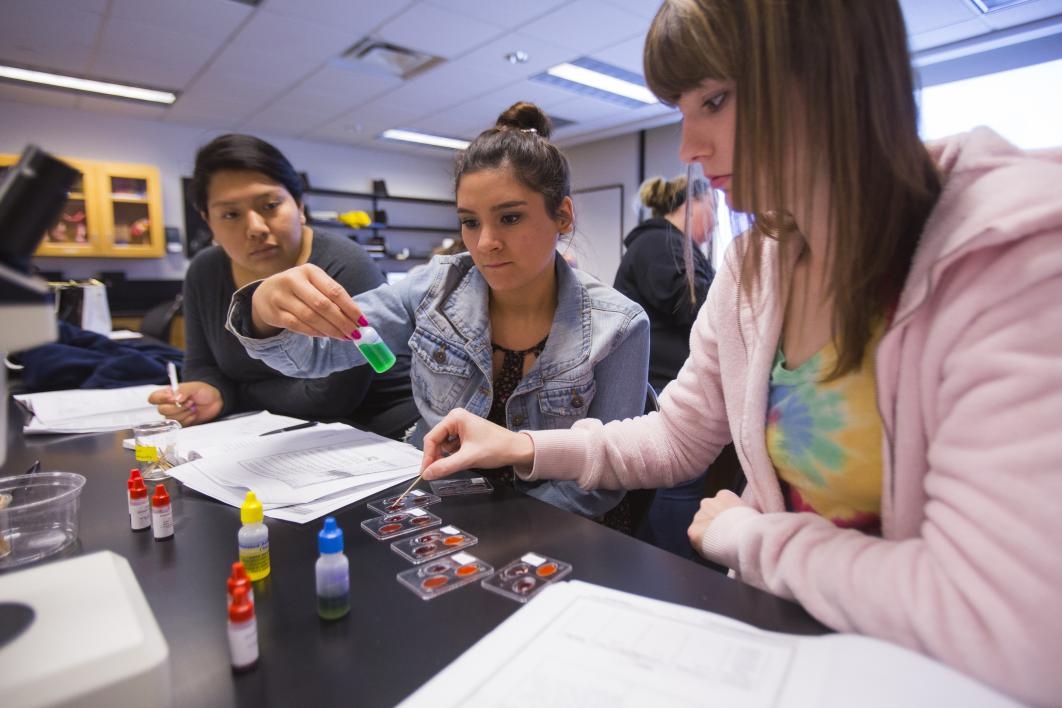ASU’s College of Integrative Sciences and Arts celebrates name change with page from da Vinci
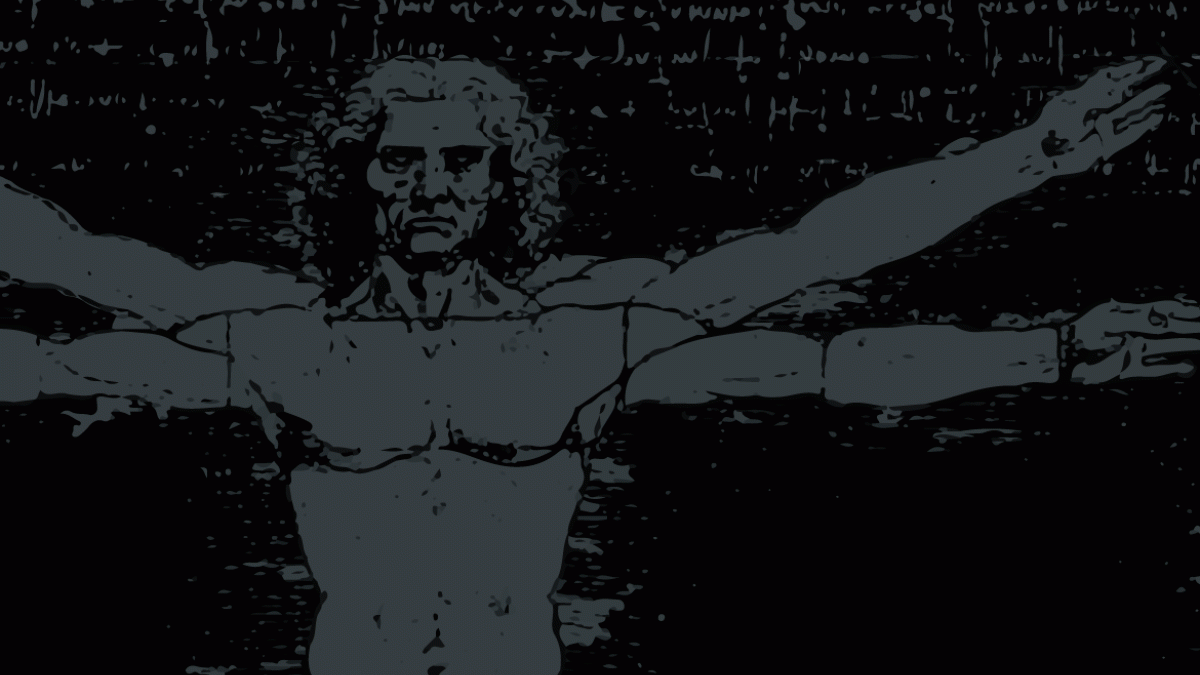
"The name College of Integrative Sciences and Arts accurately describes our approach to teaching, learning and discovery,” said dean Duane Roen, “and we're leaning on Leonardo da Vinci to help us crystallize an understanding of that approach."
If you’ve been away from ASU for the summer, you may notice on your return that there’s a “big man on campus” — Leonardo da Vinci’s iconic “Vitruvian Man” has been enlisted on seven-foot banners to help herald the news that the ASU liberal arts college most recently known as the College of Letters and Sciences is now the College of Integrative Sciences and Arts.
“The new name more accurately describes our approach to teaching, learning and discovery,” said Duane Roen, dean of the College of Integrative Sciences and Arts, “and we're leaning on Leonardo da Vinci to help us crystallize an understanding of that approach.
“Da Vinci connected broad knowledge from many arenas to envision imaginative solutions in the 1400s and 1500s that were future-ready. We hope to develop similar capabilities in our students during their time at ASU,” he said.
The college, one of three liberal arts colleges at ASU, began using the new name in its website and other communications on July 1. Students were alerted to the name change on their My ASU pages and e-blasts over the summer, Roen said. They will begin to see the new college name on their degree records this week, after updates in the university’s PeopleSoft systems.
‘Build what you need, not what’s always been done’
The evolution of the College of Integrative Sciences and Arts has been organic, according to Roen, and very much in the “build what you need, not what’s always been done” tradition that has helped shape ASU as The New American University.
The college traces much of its lineage to East College, formed in 1997 at what is now ASU’s Polytechnic campus, and to the School of Interdisciplinary Studies, formed at Tempe campus in 2004. Over the years the college has grown to include new faculties across the humanities, sciences and social sciences, as ASU expanded geographically and reshaped academic units. It became known as the School of Letters and Sciences in 2008 and the College of Letters and Sciences in 2015.
Some 6,100 ASU students are completing majors or Exploratory tracks in the College of Integrative Sciences and Arts on ASU’s Polytechnic, Tempe, Downtown Phoenix and ASU Online campuses; at the Colleges at Lake Havasu City; and through in-person bachelor’s degrees in partnership with community colleges in the region (ASU@TheGilaValley, ASU@Yuma, ASU@Pinal).
“We serve many students whose life situations, responsibilities, and geography don’t allow them a traditional undergraduate experience,” noted faculty head of Leadership and Interdisciplinary Studies Kevin Ellsworth. “We’re committed to making education accessible to Arizonans who live far from the Phoenix valley, including those who are better served by in-person classes than by online education.”
“Lean and nimble” is how Professor Barbara Lafford, head of the Faculty of Languages and Cultures, describes her faculty group and the college. “We’ve always been quick to respond to university initiatives to help foster student success.”
For example, the nearly 50 Languages and Cultures faculty on ASU’s Downtown Phoenix campus teach courses in seven different disciplines (communications, English, history, philosophy, religion, Spanish and women’s studies) and some individuals have taught in more than one area. They often share teaching strategies with one another that work across disciplines to help students succeed.
Enthusiasm for integration, collaboration, innovation
What makes some of the College of Integrative Sciences and Arts majors and programs distinctive? The courses, degrees, and service projects noted below convey the range of integrative and applied work going on within each of the college’s faculties.
Faculty of Leadership and Interdisciplinary Studies (Tempe campus)
In interdisciplinary studies, the college’s most popular major, students choose two concentration areas from more than 100 possibilities and then integrate those in a capstone course and in an applied internship or project.
Degrees in liberal studies and general studies offer flexible options for students returning to school with previously earned credits.
The faculty’s 12,424 graduates over the past 19 years have collectively spent more than 1.6 million hours interning with public, private and nonprofit organizations.
Science and Mathematics Faculty (Polytechnic campus)
Degree programs are designed for students interested in using science and mathematics to solve real-world challenges, such as managing sustainable wildlife populations and urban ecosystems, plant and food production, veterinary medicine, analysis of massive datasets, nano-optics and computational materials, bio-manufacturing, green technology, and bio-medical production.
New degrees include applied mathematics, applied quantitative science, and applied physics, which brings physics, computer science and modern mathematical modeling to bear on real-life problems in materials sciences and engineering.
Faculty of Interdisciplinary Humanities and Communication (Polytechnic campus)
The online literary magazine Superstition Review integrates student learning, online communication technology, art, and literature.
Bachelor’s and master’s degrees in technical communication integrate issues of communication and technology.
Faculty of Social Science (Polytechnic campus)
Propelled by a new model that merges social science disciplines and allows for true fusion of ideas and methodologies, the faculty is developing degree proposals for undergraduate, graduate and certificate programs in integrative social science. Students will apply a multidisciplinary lens on societal questions from multiple angles, with technology integrated throughout the curriculum.
Faculty of Languages and Cultures (Downtown Phoenix campus)
English faculty are working with the College of Health Solutions to offer a ProMod (project-based learning) project to engage students with real-world health solutions. They’re also working with the College of Public Service and Community Solutions on two ProMod projects: one focused on solving issues of recidivism and the other on issues related to the foster care system.
Communications faculty are developing a course with the College of Health Solutions to help future medical professionals learn effective communications skills for better patient-centered care. They are also involved in ProMod W.P. Carey, which combines courses in many disciplines to help students develop and practice their skills as sustainability consultants.
Three Spanish for the Professions medical courses were created with the College of Nursing and Health Innovation to meet students’ needs.
Interns in the Spanish for the Professions program volunteer as medical interpreters at local clinics and law offices, and help community members hone English and computer skills.
Faculty assist in delivering ProMod High School, which integrates multiple high school and college courses into single projects and eases the college transition for Phoenix-area students.
Writers' Studio, an online and face-to-face option for first-year composition, helps students become confident composers as they use multiple media to integrate rhetorical skills and practice essential cognitive habits.
English faculty from across the college of Integrative Sciences and Arts are involved in ASU’s Global Freshman Academy, where students learn writing as an integration of academic, informational, technological, and social literacies.
Faculty of Science, Mathematics and Social Science (Downtown Phoenix campus)
Chemists, biologists, mathematicians, social scientists, and physicists offer 42 foundational courses for students from a variety of majors offered by the Walter Cronkite School of Journalism and Mass Communication and the colleges of Health Solutions, Nursing and Health Innovation, and Public Service and Community Solutions, which includes preparing students for professional career paths such as pre-medicine, pre-pharmacy and pre-dental.
Up-to-date teaching techniques make students active, participatory explorers of current issues in chemistry, biology, mathematics, and social science. In the "Science Hub,” students take advantage of one-on-one tutoring by more than 80 math and science staff.
Faculty of Counseling and Counseling Psychology (Tempe campus)
Faculty train counselors and psychologists to work with diverse communities in a variety of mental health settings. Faculty conduct research on acculturative stress, intersecting social identities, immigrant well-being, and mental health disparities.
Graduate students gain experience in the Counseling Training Center, working faculty who are licensed psychologists to help individuals, couples, and families resolve issues that are barriers to healthy relationships and well-being.
Join the College of Integrative Sciences and Arts communities on social media at:
Facebook: https://www.facebook.com/CISAASU
Twitter: https://twitter.com/CISA_ASU
More Science and technology

Ancient sea creatures offer fresh insights into cancer
Sponges are among the oldest animals on Earth, dating back at least 600 million years. Comprising thousands of species, some with…

When is a tomato more than a tomato? Crow guides class to a wider view of technology
How is a tomato a type of technology?Arizona State University President Michael Crow stood in front of a classroom full of…

Student exploring how AI can assist people with vision loss
Partial vision loss can make life challenging for more than 6 million Americans. People with visual disabilities that can’t be…


